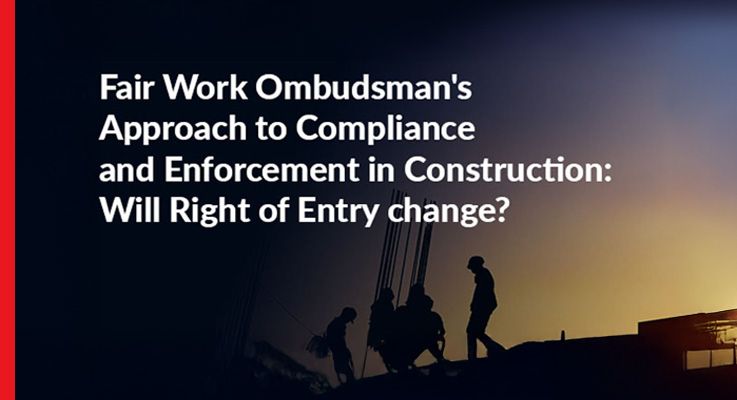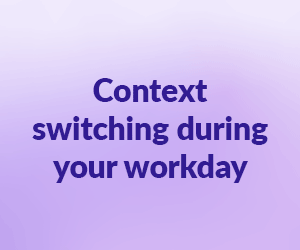The use of artificial intelligence in legal practice continues to mature. While early adoption focused on discrete applications such as drafting assistance, document summarisation, and research support...
Introduction Artificial intelligence is reshaping the ways organisations manage the entire employment lifecycle, from screening resumes and identifying potential candidates to supporting employee development...
Authored by Jennifer Raphael , Senior Legal Writer, Construction. 2026 is shaping up to be a pivotal year for construction law in Australia. Across multiple jurisdictions, governments are moving from...
Across Australia and New Zealand, legal professionals are embracing a new era of AI-powered transformation. At the 2025 LexisNexis Legal AI Showcase , hundreds of attendees tuned in to see how Lexis...
Authored by Seeta Bodke , Head of Product - Pacific, LexisNexis® Legal & Professional At LexisNexis, our mission is to advance the rule of law through responsible innovation. The launch of Protégé General...

Following the formal abolition of the Australian Building and Construction Commission and the transfer of its functions to the Fair Work Ombudsman (albeit with a fraction of the budget), some employers are asking legitimate questions about the FWO’s approach to compliance and enforcement.
The questions include whether:
- there will be a different right-of-entry approach by the FWO to that of the ABCC in terms of responding to employer concerns regarding union attendance on site
- whether the FWO will adopt the hard-line approach to the prosecution of unions and their officials that saw the ABCC commence 16 proceedings in the federal courts, during the 2021-22 financial year alone. Right-of-entry issues were at the heart of just under half of these proceedings.
Some of these questions were put to the Fair Work Ombudsman, Sandra Parker, when she appeared before the Education and Employment Legislation Committee Estimates hearing.
Where the ABCC was known for fielding calls from concerned employers and dispatching inspectors to job sites to investigate union officials seeking to exercise right-of-entry to the site, Ms Parker’s responses to the Senate Committee appeared to confirm that this will not necessarily be a feature of the FWO’s approach to compliance.
Noting that the ABCC had key performance indicators that related to the number of site visits made by inspectors, Ms Parker confirmed that the FWO will not mandate a specific number of site visits and will not ‘automatically’ send a Fair Work inspector to do a site visit when contacted by an employer or occupier of a site.
Ms Parker went on to say:
- ‘when incidents or issues arise. . . we respond by seeking information… we don't arm up and go out to sites necessarily. So it's a slightly different approach to the ABCC but it is in line with our other work and what we've done in other sectors’
This difference in the right-of-entry approach is consistent with the Fair Work Ombudsman’s Compliance and Enforcement Policy, which states that:
Assessment
When the FWO becomes aware of allegations of non-compliance with the FW Act and/or a fair work instrument, we assess each matter to decide how we will respond.
Before any investigation or inquiry is commenced, a case assessment process is undertaken first to determine, amongst other things, whether the FWO has jurisdiction, and whether the use of our investigative powers is in the public interest (which involves an assessment of whether any proposed compliance activity would be an efficient, effective and ethical use of public resources).
How will the different approaches play out?
It remains to be seen how the different right-of-entry approaches of the Fair Work Ombudsman will play out in matters where the exercise of a purported right-of-entry causes disputation. Maybe, some unions could alter their approach to seeking entry to premises given a possible decrease in site visits by inspectors and action on site generally. This could potentially lead to disputation about right-of-entry, particularly in safety-sensitive industries with high levels of union density.
In light of this shift, it is incumbent on all industry participants to understand their rights and responsibilities when it comes to responding to union officials seeking access to a work site, either under the right-of-entry provisions in the Fair Work Act 2009 (Cth) or relevant workplace health and safety legislation.
Practical Guidance Employment
Practical Guidance Employment is a how-to resource for workplace law practitioners, human resources professionals and in-house counsel dealing with workplace law matters.
Access checklists and guidance notes that can assist:
- An employer or occupier of a site,
- In working through the technical and administrative requirements associated with right-of-entry,
- To determine whether the union official is entitled to access the site or
- Whether the employer/occupier of the premises is lawfully permitted to refuse access.
Contact us below for more information.






